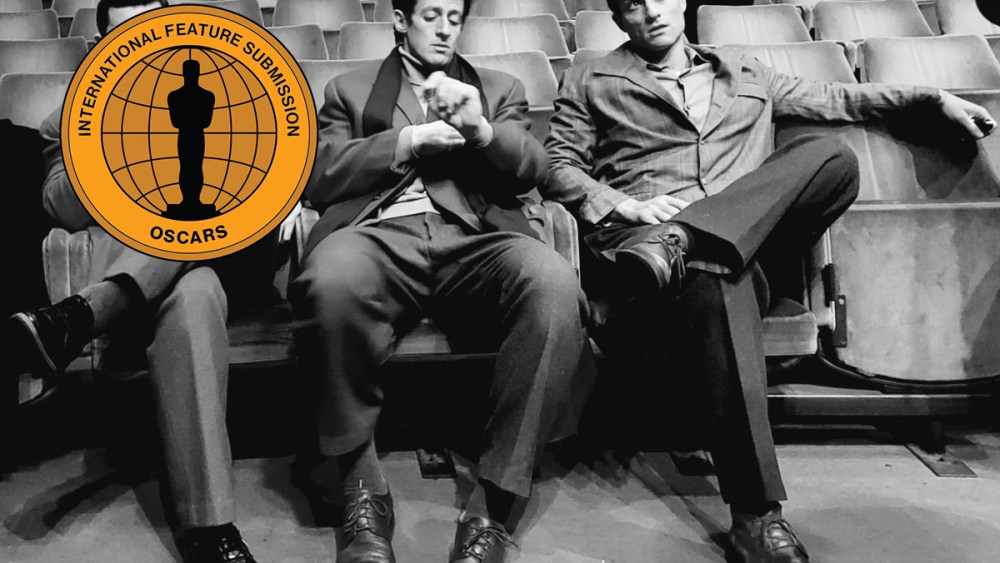‘Beautiful Evening, Beautiful Day’ Review: How Croatia Defied Censorship
It takes a while in “Beautiful Evening, Beautiful Day” to reach Barren Island, a notorious penal colony in the former Yugoslavia where no cells were necessary and armed guards counted on the sea to keep those incarcerated in line. However, a prison without bars reveals itself early on in writer-director Ivona Juka’s stark and occasionally overzealous black-and-white drama. The film is set in 1957, just after the country escaped the threat of fascism of the Nazis, only to fall into the clutches of communist Josef Broz Tito, who was no less shy about casting off dissenting voices, including those of the gay community.
When Tito maintained his hold on the public’s imagination through propaganda, “Beautiful Evening, Beautiful Day” unapologetically offers up a much grimmer image of his leadership through following a pair of romantically intertwined filmmakers Lovro (Dado Cosic) and Nenad (Djordje Galic). Having a supporter in the upper reaches of government from serving time in the military, the two spend their days on set without interference and can be seen holding hands at the dinner table of Lovro’s parents without a care in the world. However, Lovro appears to have opened the door to trouble by attempting to film a scene in their latest film that hints at a border guard and a soldier in Yugoslav’s Peoples army running away together to Italy, catching the attention of an on-set observer from the censorship board.
Juka’s own disregard for such oversight is evident only a few seconds in when opening “Beautiful Evening, Beautiful Day” with a graphic sex scene between Lovro and Nenad that surely wouldn’t pass muster with even a present-day committee. (In fact, after being selected as Croatia’s official Oscar selection, the filmmaker has alleged far less financial support for an awards campaign than others from the country from recent years.) Yet the story comes to lean on a person of authority when introducing Emir (Emir Hadzihafizbegovic), a mid-level bureaucrat assigned by the state to oversee Lovro’s next film and asked unofficially to sabotage the production from within. The poker-faced Hadzihafizbegovic imbues Emir with a seen-it-all credibility that makes it possible to believe he’s willing to be as skeptical of those operating above him as below.
Juka ably sets up a society in which no one can trust one another and the government is eager to drive wedges even further by turning anyone into an informant. But there’s an unfortunate tendency to put the demands of the story ahead of the characters, leading to rash decisions on their part that don’t entirely track. The director also runs the risk of arguing so adamantly against bigotry that sensitivity towards those being marginalized is overlooked. When the situation grows violent for Lovro, Nenad and their friends and colleagues Stevan (Slaven Doslo) and Ivan (Elmir Krivalic), it becomes infuriating for other reasons than intended. One brutal scene, a beating of a gay man who’s just shown an extreme kindness, plays as if it’s strictly his decency — not his sexuality — that makes the cruelty appalling. The film also abandons an admirable effort to normalize the physical act of sex between two men on screen; there isn’t much visual differentiation in how rape is presented during Barren Island sequences.
Although Juka never explicitly makes the suggestion, there is the sense that “Beautiful Evening, Beautiful Day” is the kind of film that Lovro and his band of bohemians would make if left entirely to their own devices, for better or worse. The film isn’t as rebellious against narrative conventions as it is in other respects, which makes the moments where passion can cloud coherence, both in its anger but also in reverie as scenes of dance and merriment can also feel gratuitous, come across as aggravatingly out of sync. But when the predominant narrative of an era has been set by someone else, Juka is aware how powerful that unfiltered perspective can be. Still living with the history Tito built after flooding the airwaves internationally and crowding out the perspective of anyone who dares to dissent, the sight of someone grabbing a film camera to capture a day on the coast when Lovro and Nenad go skinny dipping becomes one of the most moving scenes in the film. It asserts the existence of those that have been largely erased to this day, even if they are the only ones to know the footage exists. One can be glad that Juka picked up her camera as well.


